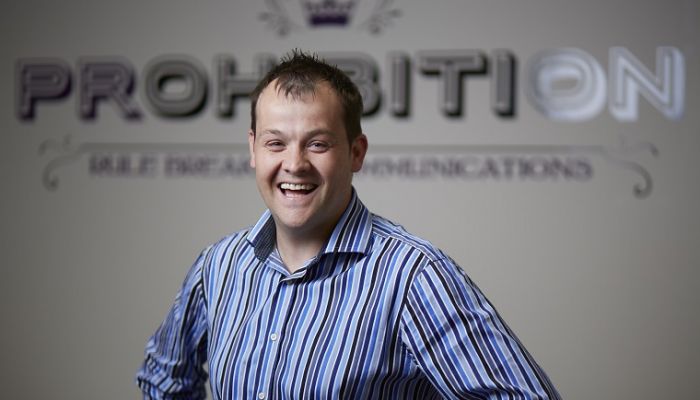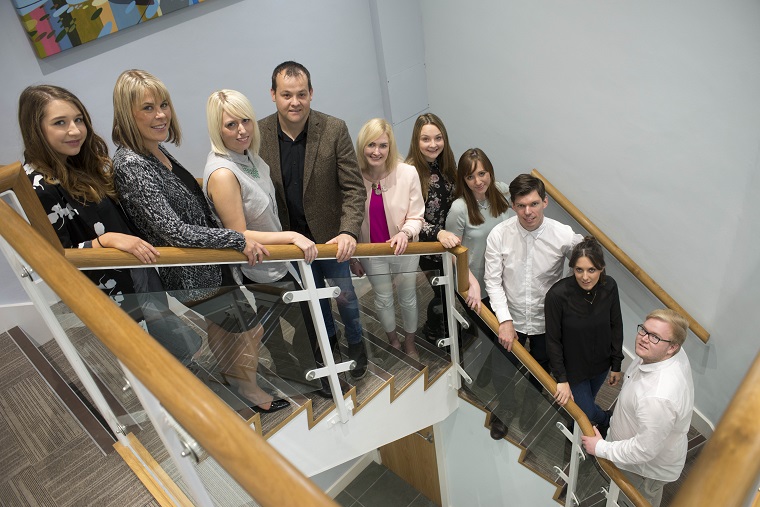Blogger Spotlight: Chris Norton, Norton’s Notes
Chris Norton, the author of Norton’s Notes is definitely no stranger to our list of top 10 PR blogs. Since 2007 Chris has provided the PR industry with a fresh take on technology, social strategy and campaigns, digital PR, and crisis management, among other topics. With his extensive experience in PR, both agency-side and in-house, Chris offers his readers a detailed and interesting approach to current trends in the industry, such as how to tackle the fake news epidemic, and how technological advances are changing the face of PR.
In this spotlight, Chris, who recently appeared on our top ten PR ranking chats to us about the importance of measuring the success of his blog, why his blog is a tool for social media marketing, and why PRs need to embrace social media listening in 2017.
Can you tell us a little bit about yourself and what made you start writing your blog? My name is Chris Norton, I am the founder and managing director of Prolific North’s small PR Agency of the year Prohibition and have been blogging about PR, technology and social media marketing since back in 2007. I have actually been working in PR since 2000 (ouch that makes me sound very old), I worked in London for several years before coming back to my hometown of Harrogate.
I currently lecture on the PR degree at Leeds Beckett University on social media strategy, as I was asked by the course leader a few years ago to help the PR graduates keep up with the innovations in the industry.
These days I am pretty busy running Prohibition, as we have ten staff and some amazing clients which take up the majority of my time, but to unwind I like to spend my time Thai Boxing, reading and taking my two little boys to the football as they are both football crazy.
Why should people read your blog? What makes it different? This is a big question, every blog is different. Each person or writer should have their own personality and share that personality on their blog, and if they don’t, they can turn out to be a complete bore fest.
So I try to think of less is more with my personal blog, as there is too much noise out there already. I tend to start writing a post when I see something that provokes a reaction inside of me. I like to write a bit about public relations, and how the industry has changed, albeit a little too slowly in my opinion, but also from a more digital and integrated perspective. Although I work in public relations – I know the lines of marketing are very blurred, so I also like to try and write about other subjects that interest me. So I write about all sorts from technology, hotels, food, news and of course my team here in Leeds.
How do you measure the success of your blog? I used to measure my subscribers really closely, back when I started in 2007 I used to use tools such as Feedburner. However, these days I tend to check my page views in Google Analytics and see which posts have been viewed the most. I also take a closer look at my blog shares as a lot of what I write tends to be more for the LinkedIn and Twitter audiences rather than Facebook.
What has been your blogging highlight? I love blogging and although it can be a bind sometimes when you are really busy – it is still the centre piece of social media marketing for me. A blog is the place where you can share your thoughts in a full and proper manner. Not only that, but there are real benefits too. If you blog regularly it can be great for SEO but that should never be your core reason to start one or you won’t succeed and keep it going – you have to have a genuine passion for what you are writing about.
If I had to choose a particular highlight I would say being quoted in official media outlets like The Guardian and PRWeek are fairly high up there.
I never started writing to be an influencer, to generate SEO or to get a better job. I just started to share my thoughts on social media and to learn how to use blogging as a tool for my clients and to be honest it was a great way to do it. I have met a lot of great people off the back of my blog, so I am as committed to it today as I was when I started it ten years ago.
7 October 2015.
Prohibition PR, Leeds.
What key trends do you think we will see in relation to how PRs create content in 2017? The whole industry is changing which is a good thing, I am all for innovation in our sector – I love looking for new ways of doing things.
I think more bloggers will be live streaming this year – Periscope and Facebook Live have changed the game as they aim to fight off competition from Snapchat. Short video is where it’s at this year – all the platforms seem to be fighting for your view counts but don’t be fooled by them. The measurements are different – some measure a view at 3 seconds and some at ten seconds.
I also think PRs need to embrace social media listening in 2017, as it was very big in 2016, and this is only going to continue as brands use listening for their customer insights.
Finally, I think PRs will need to wear many more hats in 2017, as we need to be technically savvy and good quality content producers. Also, we all need to understand web analytics and the impact these metrics can have on our campaigns. Death to the dreaded AVE.
What strategies should PRs apply to create effective campaigns? This is a very big question, if you want to be effective in PR today. You need to think digitally and yet still use the old tactics to get the job done – like using an actual phone. So many of today’s agencies are still shying away from the telephone and just send emails hoping their latest story will get covered. That issue is the same today as it was ten years ago – if you call you will get a better result and that is despite what you hear about journalists complaining they are called too much. The truth is if you don’t call – you don’t know why your story isn’t working. Sure you can use social media to build the relationship but I still believe in the power of calling or even better a face to face meeting.
You should be able to adapt your strategy as you go. So if your campaign release isn’t cutting it – tweak the angle and adjust the story and try again. Persistence is still a strong strength in media relations in 2017.
PR is still a craft and we must fight to maintain it as such a useful skill – any old idiot can click send. We are not emailers after all – we are in the business of reputation management.
As you know strong relationships are at the heart of PR. So, what can PRs do in 2017 to build stronger relationships with their clients? Yes, relationships are still important, and maintaining robust relationships that last the tests of time is critical in today’s shrinking industry. There are now more PRs than journalists and that trend will probably slow but is still likely to continue.
News in 2017 is hyperlocal. I am still amazed that many of the regional titles haven’t cottoned on to this – we still want news about our area but we want hyperlocal news that is relevant to us and then we will share it, engage with it and you can mobilise people.
If PRs want to create strong relationships with their clients, I would advise they look at assessing what personalities their clients have. I am a firm believer in the power of psychometric testing and using that as a basis to form a strong team, but the same philosophy can be used on your clients. Try to get under their skin so you can figure out how they think and when they react.
I would also recommend building a profile on your clients, so your team know more about them personally so they can get to know the client on a more personal level. People want to work with people not robots – so it’s your job to build a rapport with your client that will stay strong even when you make a mistake or two.
What advice would you give to PR agencies who want to boost their social media presence this year? You need to invest proper time and money into it – to make your agency stand out can be hard but don’t try and copy others. The best content from agencies tends to be the more informal stuff that gives you a feel for that company. I like companies showing they practice what they preach, but keep it interesting and fun and stay true to their brand.
How do you keep your content fresh and up to date with current trends? I am a complete news junkie and always have been – if you want to be a success in PR you need to stay on top of the news agenda. So I read a lot, I listen to loads of podcasts and my Feedly is creaking at the seams with all of the technology blogs I subscribe to. I like to have a quarterly cull of it, in order to maximise my time, and ensure I am reading the stuff that I need too.
I want to read the news, and stay abreast of the latest issues which are taking place in the industry. We also have some excellent resources in PR from the CIPR now, such as CIPR Influence, which takes the best content from the best bloggers and shares it all online.
I would also advise practitioners to use things like PR Stack and the CIPR and PRCA websites as they share really useful training kits for their members and that help with new developments. The best advice though is read other people’s blogs, twitter streams or LinkedIn accounts though – you can learn more from your peers than anywhere else I think.
What’s next for you? Will you be working on any exciting projects? The next stage for me personally is to turn Prohibition from the Best Small PR Agency of the Year last year into a multi-million-pound consultancy that is respected as one of the finest in the country. In truth, we are not quite there yet, but I have a brilliant team behind me, that is committed, and so hopefully in a few years’ time we will have achieved our goal.









Leave a Comment